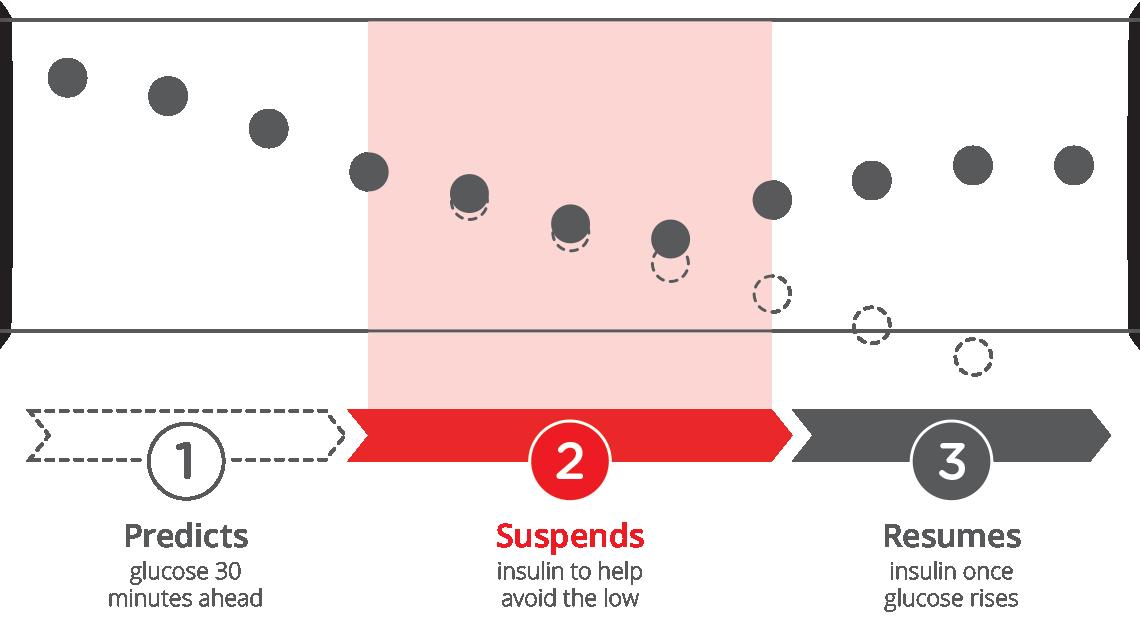
3 minute read
ADVANCED TECHNOLOGIES & TREATMENTS FOR DIABETES CONFERENCE UPDATES
Several doctors from the Barbara Davis Center were able to attend the 13th International Conference on Advanced Technologies & Treatments for Diabetes in Madrid, Spain this February. Dr. Paul Wadwa and Dr. Laurel Messer presented data from Control-IQ hybrid closed-loop and Basal-IQ technology studies conducted inpart at the BDC.
INTERNATIONAL DIABETES CLOSED LOOP PROTOCOL-5 (DCLP5) STUDY RESULTS
Tandem Diabetes Care, Inc., announced positive data presented this February on its automated insulin delivery technologies, including data from a study of the t:slim X2™ insulin pump with ControlIQ™ advanced hybrid closed-loop technology demonstrating increased time in range (70 mg/dL -180 mg/dL) in children ages six to thirteen.

Details from the Protocol 5 (DCLP5) of the National Institutes of Health-funded International Diabetes Closed Loop (iDCL) program, an international consortium of academic centers led by the University of Virginia, were presented by Dr. Paul Wadwa, Associate Professor of Pediatrics, at the Barbara Davis Center for Diabetes, University of Colorado Anschutz Medical Campus, and the protocol chair for this trial.
“This study demonstrated that in school-aged children with type 1 diabetes, who often struggle with diabetes management for a variety of reasons, use of Control-IQ technology led to improved glucose control during both the day and night,” said Dr. Wadwa. “We are thrilled with these results and are hopeful that this system will ultimately offer a valuable treatment option to benefit children with type 1 diabetes.”
Time in range (70 mg/dL – 180 mg/dL) for children using Control-IQ technology for 6 months increased from 53 percent to 67 percent, compared to those in the control group who increased from 51 percent to 55 percent using sensor-augmented pump therapy alone. During the overnight period, sensor time in range with Control-IQ technology was 80 percent compared to 54 percent in the control group.
The t:slim X2 insulin pump with Control-IQ technology uses Dexcom G6 CGM values, in conjunction with other variables such as insulin on board, to predict sensor glucose levels 30 minutes ahead and adjust insulin delivery accordingly. If glucose values are predicted to drop below 112.5 mg/dL, basal insulin delivery is reduced, and when predicted to be below 70 mg/dL, basal insulin delivery is stopped. If glucose values are predicted to be above 160 mg/dL in the next 30 minutes, basal insulin will be increased. If glucose values are predicted to be above 180 mg/dL, Control-IQ technology calculates and delivers a correction bolus with a target of 110 mg/dL once an hour as needed. Control-IQ technology also offers optional settings for sleep and exercise that will change treatment values to better match the different physiologic needs during these activities.
REAL WORLD SATISFACTION WITH BASAL-IQ TECHNOLOGY
Details from a longitudinal satisfaction study of commercial users of Basal-IQ technology were presented by Laurel Messer, RN, PhD, CDE, Assistant Professor of Pediatrics at the Barbara Davis Center for Diabetes at the University of Colorado Anschutz Medical Campus.

Basal-IQ technology uses CGM values to help reduce the frequency and duration of low-glucose events by predicting glucose levels 30 minutes ahead and suspending insulin if they are expected to drop below 80 mg/dL or if a CGM reading falls below 70 mg/dL. Insulin delivery resumes as soon as sensor glucose values begin to rise.

This study included 541 commercial users with T1D or caregivers of T1D minors who completed the Diabetes Impact and Device Satisfaction questionnaire prior to Basal-IQ start, and 2, 4, and 6-months post-initiation. The study included people switching from Multiple Daily Injections (MDI), non-Tandem insulin pumps, and current Tandem pump users. Study aims were to measure device satisfaction (e.g. ease of use, trust, perception of glucose control) and diabetes impact (e.g. perception of sleep quality, fear of lows, interference with daily activities).
Basal-IQ technology increased device satisfaction in former MDI and non-Tandem pump users, and sustained satisfaction across all user groups. Additionally, a reduction in diabetes impact was observed by the midpoint of the study and sustained over 6 months for all user groups.



